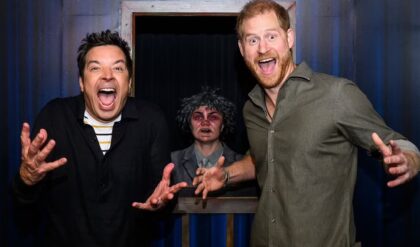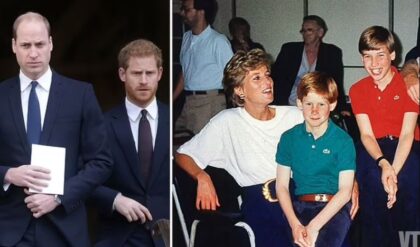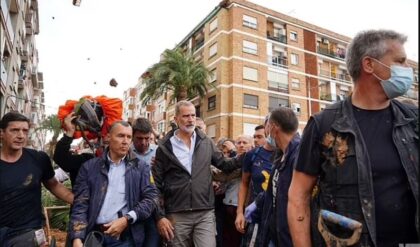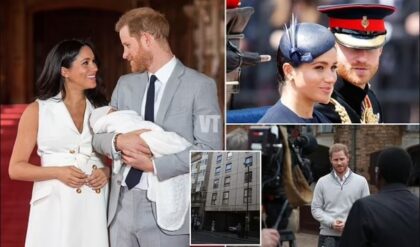The Irish actor — who stars in the recently-released film ‘Marlowe’ — will turn 71 this summer, but he’s already lived the lives of many men. He’s been a talented stage actor, a sex symbol, a brooding hero, a box office success, a survivor of tragedy… and he’s still going strong
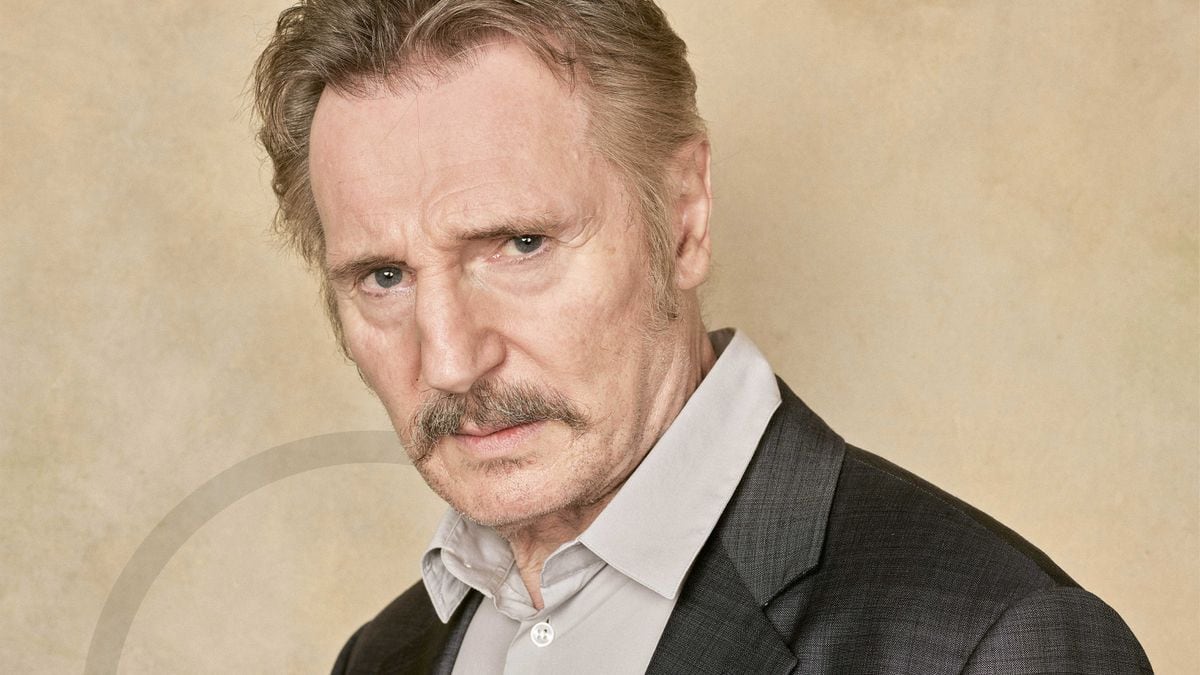
Liam Neeson, in an image provided by the San Sebastián Film Festival, where ‘Marlowe’ was screened.Photo: JORGE FUEMBUENA
On many occasions, Liam Neeson, 70, has been compared to trees.
Standing at over 6 ft 3 with a solid build, the Irish actor has been referred to as an “oak tree” by journalists, while a theater critic once described him as a “sequoia of sex.” And, in 2017, he even played a yew tree in the film A Monster Calls.
However, on a rainy morning in San Sebastián, Spain, Neeson walks into the room of the Hotel María Cristina with an attitude more fitting for a willow tree.
He’s in Spain to promote the film Marlowe — the film adaption of The Black-Eyed Blonde (2014), the novel in which John Banville revived the private detective that Raymond Chandler created in 1933.
During the press conference, a journalist pushes Neeson to retell the saddest moment of his life.
The question was about the Abraham Lincoln biopic that Steven Spielberg wanted Neeson to star in, but Daniel Day-Lewis ended up doing.
The journalist was perhaps unaware (or perhaps perfectly aware) of the reason for the last-minute change. The script-readthrough took place just months after the death of Neeson’s wife, who perished in a ski accident.
At one point during the reading, the actor took Spielberg aside and confessed that he didn’t feel up to the task of playing the role.
Neeson’s narration turns the routine press conference — often a formality — into a meditation on grief. And, with that frame of mind, he sits down to speak with EL PAÍS.
“I’ve always wanted to play [the fictional detective] Philip Marlowe,” he admits. “I wasn’t intimidated that the character had been done before by Humphrey Bogart [in The Big Sleep] or Robert Mitchum [in Farewell, My Lovely]. I knew director Neil Jordan would put his own quirky spin on it. What did intimidate me was the cast.
Working again with Jessica Lange — 27 years after Rob Roy — with Diane Kruger, with Danny Huston, with Alan Cumming… but filming in Barcelona was a real pleasure.” At the press conference, one of the producers of Marlowe points out that the film’s credits are full of Spanish names. “Catalan,” Neeson corrects him.
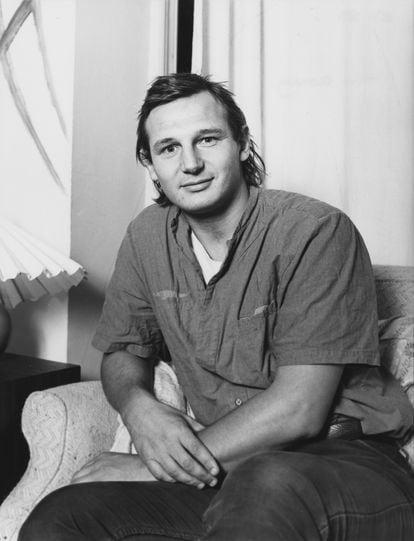 Liam Neeson in 1983.DON SMITH (GETTY IMAGES)
Liam Neeson in 1983.DON SMITH (GETTY IMAGES)
Neeson was born in Ballymena, a working-class town in Northern Ireland. His origins marked the attitude that he brought to his craft. “I like to work. I love having a reason to get up in the morning.
I feel so lucky and blessed to be doing this professionally since 1976 in the theater. I tell my sons: ‘if you can find a reason to get up from your bed in the morning for something you love doing, it doesn’t matter what it is, you have a gift for the rest of your life.’”
A part of him has always felt that he was derailed from his destiny, that he should actually be working in a factory in Belfast.
Neeson grew up in a house full of women, with three sisters and a father who “never used five words if he could say [what he wanted to say] in two.”
He was an altar boy, which left him with a passion for the theatricality of Mass and a knack for Latin pronunciation.
As a teenager, he became a boxer, which left him with a broken nose. The artistic vocation would come to him later, when he discovered that acting could allow him to access his emotions in a way that he had never been taught to do at home.
Among British and Irish actors, there is a long-standing custom: behave as if any jump to Hollywood from the stage has simply happened by chance. In British society, being overly ambitious is frowned upon, considered to be in bad taste — especially when it comes to making it in a place as frivolous as Hollywood.
But Liam Neeson was always honest about his ambition. He moved to Los Angeles in the early-1980s because he wanted to see his face on the biggest screen possible
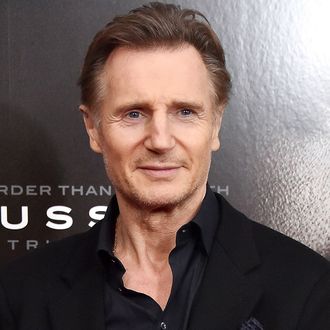
The epiphany occurred when he stayed at a luxury hotel in Miami during the filming of The Mission. He turned on the TV and saw his face in an episode of Miami Vice, in which he played an IRA terrorist. Here I am, he told himself. “This is my place.”
Hollywood opened its doors to him, but it assigned him a role that he had never expected: that of a sex symbol. In thrillers such as Suspect (1987), The Good Mother (1988) and Under Suspicion (1991), he played sensitive and seductive men, starring alongside legendary leading women, including Cher, Diane Keaton and Laura San Giacomo.
Movieline magazine said that Neeson transmitted “a kind and humanized expansion of male sexuality.”
The tabloids also took a liking to exploring “his conquests” — Helen Mirren, Julia Roberts, Cher, Brooke Shields, Jennifer Grey, Sinead O’Connor and even Barbra Streisand. His status as a leading man generated more headlines than his films.
Around that time, actress Dana Delany joked that “if you put Liam Neeson, James Woods and Willem Dafoe in one room, there would be no room for anyone else.”
Neeson’s public image was so associated with sex that Woody Allen parodied it in Husbands and Wives (1992) and Whoopi Goldberg introduced him at the 1999 Oscars while suggestively stroking the microphone…
Neeson was particularly impressed by the definition of “sequoia of sex” given to him by a New Yorker film critic in 1992. “It was referring to a Eugene O’Neill play called Anna Christie. That’s where I met my wife. I got a review, and I loved it.
I thought, ‘that is class.’ Not that I saw myself that way… But for the character I was playing, I had a very definite idea of the entrance I should make, which is this big, lumbering, half naked man coming on stage who’s been at sea for four weeks in a boat.”
The producer of the play recounted that Neeson was given the part because he looked like a man who could seduce all the women in the world, but fall in love with only one.
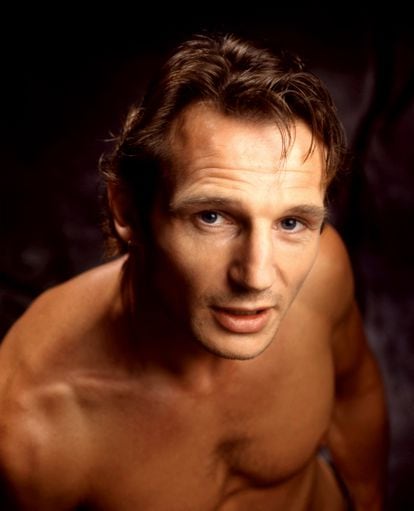
Liam Neeson in 1988.BONNIE SCHIFFMAN PHOTOGRAPHY (GETTY IMAGES)
Natasha Richardson — his partner in Anna Christie — was married when they met. She didn’t try to hide or romanticize the infidelity: she confessed that, first, there was sex and then, much later, love came.
She was British theater royalty — the daughter of Tony Richardson and Vanessa Redgrave — and he, the son of an Irish janitor.
When they got married, Vanity Fair resorted to a bawdy quip that Katharine Hepburn once said about Fred Astaire and Ginger Rogers, but with the genders reversed: “She gives him class, he gives her sex appeal.”
After a performance of Anna Christie, Steven Spielberg knocked on Neeson’s dressing room door. He wanted to greet him and introduce him to her mother-in-law, who was still crying after seeing the play.
Neeson held her close and comforted her for several minutes. At that moment, Spielberg knew he had found his Oskar Schindler.
Spielberg was trying to fill the role of the German industrialist who saved the lives of 1,200 Jews during the Holocaust by hiring them in his factories.
He had considered Harrison Ford and Kevin Costner, but he feared that too much star power would distract the audience from what was truly important.
“Initially, we thought we were making a little film,” Neeson recalls, referring to Schindler’s List. “Steven Spielberg wanted to make this particular story. The script was fantastic.
But it took them 10 years to get that script to where he wanted it. And we did not change one comma. And it got released and it took on a life of its own. It still plays in schools and universities… I was seen in some other division. I was offered more leading parts and scripts, which was great.”

Neeson became a Hollywood star. He’s grateful that it happened at age 41 “and not at 19.”
“My life didn’t change. I had a fairly good idea of who I was… I’m glad I wasn’t a kid,” he sighs. This maturity, he admits, led him to face his power in Hollywood with a certain sense of responsibility.
“I wanted to play old-fashioned heroic characters, the kind I grew up with in the cinema. People who stood something, who stood for the basic ethics of right and wrong.”
He played the roles of historical figures such as Michael Collins — an Irish revolutionary — and Rob Roy, a Scottish clan chief, in the mid-1990s, one after the other.
“I still like [those movies]. If I’m reading a script, I try to find a leading character whose good. It doesn’t have to be black or white; they may have flaws, but they’re on a mission. They’re questing after something, a truth or a justice. And I feel like we need [those characters] more than ever.”
But aren’t audiences today more cynical than those in the 1990s?
“I think they are more cynical. All the more reason to play these sorts of characters,” he shrugs.
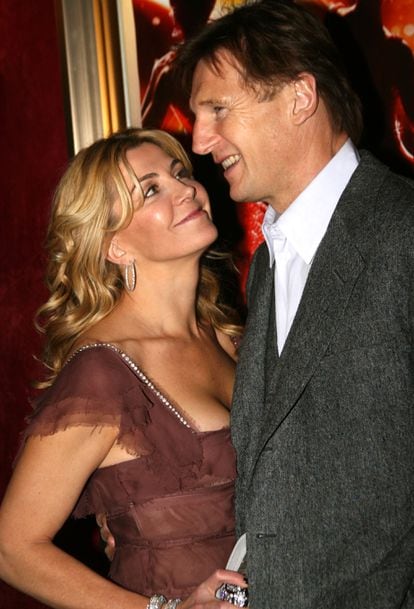
Natasha Richardson and Liam Neeson in 2006. Richardson died in a ski accident in 2009.BRUCE GLIKAS (FILMMAGIC)
Neeson seemed destined to grow old playing priests, monks and mentors, starring in iconic films such as Gangs of New York (2002), Kingdom of Heaven (2005) and Batman Begins (2005). That is, until 2009, when both his life and professional career took a violent turn. In January of that year, the movie Taken was released.
“A little career detour that I was convinced would go straight to DVD,” he jokes. The thriller — about a former CIA agent who travels to Paris to rescue his kidnapped teenage daughter — ended up taking in more than 10 times its $30 million budget.
Neeson undoubtedly contributed to that success: few actors could pull off the “I have a very particular set of skills” monologue.
In March 2009 — in the middle of the success of Taken — his wife called. She told him that she had fallen down while skiing and was fine, only a little dizzy. But the next day, she slipped into a coma.
Neeson flew to the hospital and no one would let him in until a nurse recognized his face. Richardson would never wake up from her coma — she passed away on March 19, 2009.
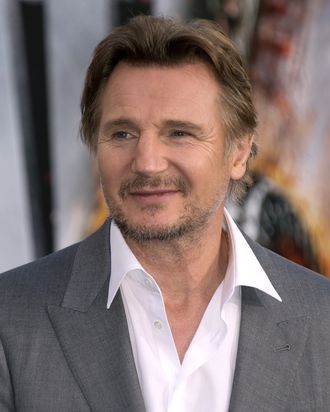
To cope with this tragedy, Neeson kept busy: he embarked on one of the most surprising third acts in Hollywood: in the past 12 years, he has shot 41 films, 17 of which are low-budget projects in which the protagonist takes revenge on some criminals.
With Taken, a modern film subgenre was born, with avengers taking the law into their own hands in the best tradition of Charles Bronson’s Death Wish II (1982).
Neeson’s vigilante films — such as Run All Night and A Walk Among the Tombstones — have made him a millionaire. The genre has also proved a comeback vehicle for other actors of his generation such as Pierce Brosnan and Denzel Washington.
Today, Liam Neeson doesn’t seem happy, but he certainly looks peaceful. About to turn 71, he hasn’t had a cigarette or a sip of alcohol in 10 years — two things that he did constantly during the previous four decades.
“Ewan [McGregor] called me Qui-Gon Gin,” he reveals, referring to the volume of alcohol he drank when he filmed The Phantom Menace.
Neeson confesses that he’s at an age where one spends more time looking to the past rather than at the future. When asked what comes to mind when he thinks about his long career, he spends a few seconds contemplating the question in silence.
“There’s a part of me feels the way Anthony Hopkins feels. Any time I see him, we give each other a hug and I say, ‘How’s it going, Tony?’ And he says, ‘Great. I haven’t been found out yet.’
There’s a part of me feels that and there’s another part. I like the craft of acting. If I’m doing a scene, I like to think: I was okay on that. That worked.’”
